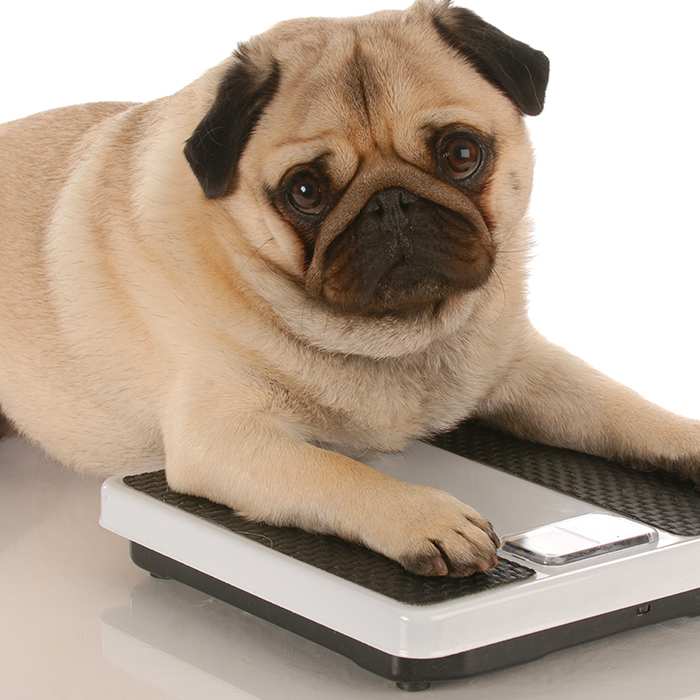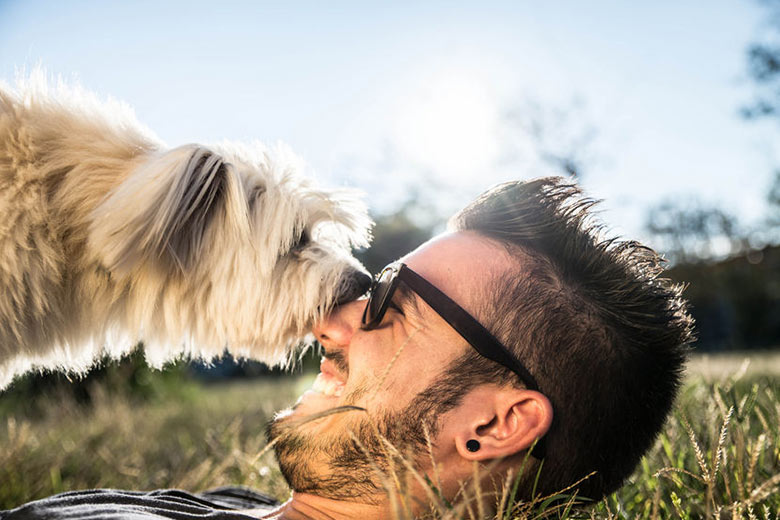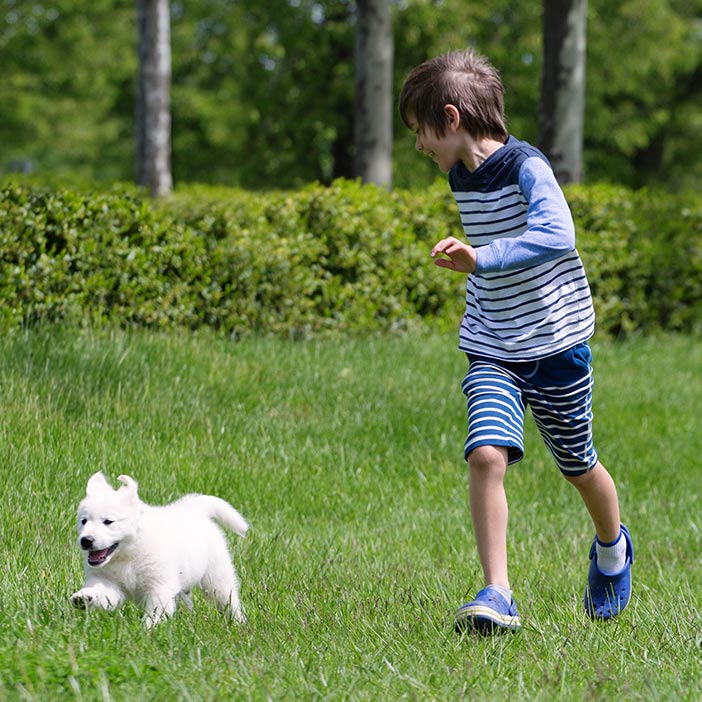The importance of exercise for adult dogs
Exercising your dog every day is a very important part of ensuring her ongoing health and well-being throughout her adult life. Unfortunately, the need for dogs to exercise daily is often taken too lightly and many dogs are under-exercised. Apart from the obvious improvements to physical health, exercise also provides your dog with many psychological benefits from having opportunities to explore the environment and encounter new sights, sounds and smells. Additionally, many forms of exercise provide crucial opportunities for social interaction with other dogs, whether a quick sniff to say hello to a passing dog or an opportunity to run and play together.
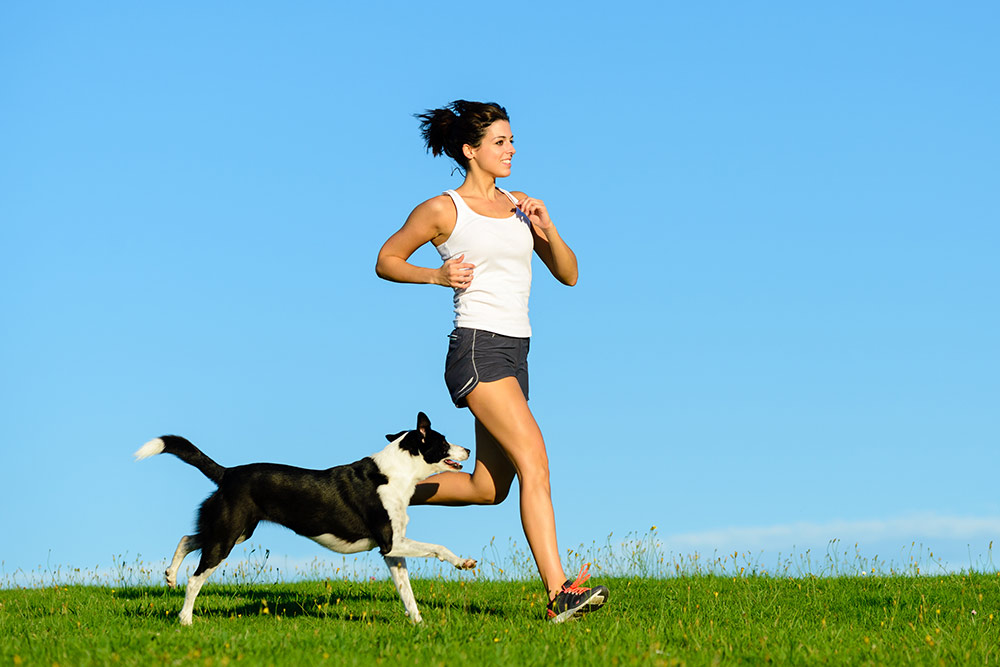
What type of exercise should my dog be doing?
 There are many different options when it comes to exercising your dog, from walking, swimming and running to strength training and numerous different dog sports. When deciding on an exercise regime for your dog, think about what sort of activities she enjoys. Just as importantly, what activities do you enjoy? If the activity is fun for both you and your dog, you will be much more likely to keep doing it. Importantly, try not to limit your dog to only one type of exercise; just as for people, variety is the spice of life, and the more types of activities she experiences, the more enriched her life will be.
There are many different options when it comes to exercising your dog, from walking, swimming and running to strength training and numerous different dog sports. When deciding on an exercise regime for your dog, think about what sort of activities she enjoys. Just as importantly, what activities do you enjoy? If the activity is fun for both you and your dog, you will be much more likely to keep doing it. Importantly, try not to limit your dog to only one type of exercise; just as for people, variety is the spice of life, and the more types of activities she experiences, the more enriched her life will be.
A word of caution before you embark on any new fitness regime. No matter what age, size, shape, breed or mix of dog you have, don’t rush into a new exercise program before you know that she is up for it. So, always see your veterinarian before you make any major changes. Also, keep in mind that there is no one-type-fits-all best way to exercise your dog – this will vary from dog to dog and is influenced by factors such as age, health, body condition and breed. Your vet can help guide your choice of activities or even create a personalised conditioning program for your dog.
The consequences of under-exercising your dog
Similarly to humans, a lack of exercise can have numerous negative effects on a dog’s physical and mental well-being. Dogs that are overfed and under-exercised may gain weight because their metabolism is likely to slow down, which can contribute to a myriad of other health problems. Insufficient exercise has been linked to problem behaviours such as hyperactivity, unruliness, excitability and destructiveness – an under-exercised dog is more likely to dig up your garden, raid the garbage or chew the furniture. Attention-seeking behaviours, such as excessive barking, and separation anxiety when left alone at home, appear to occur more often in under-exercised dogs.
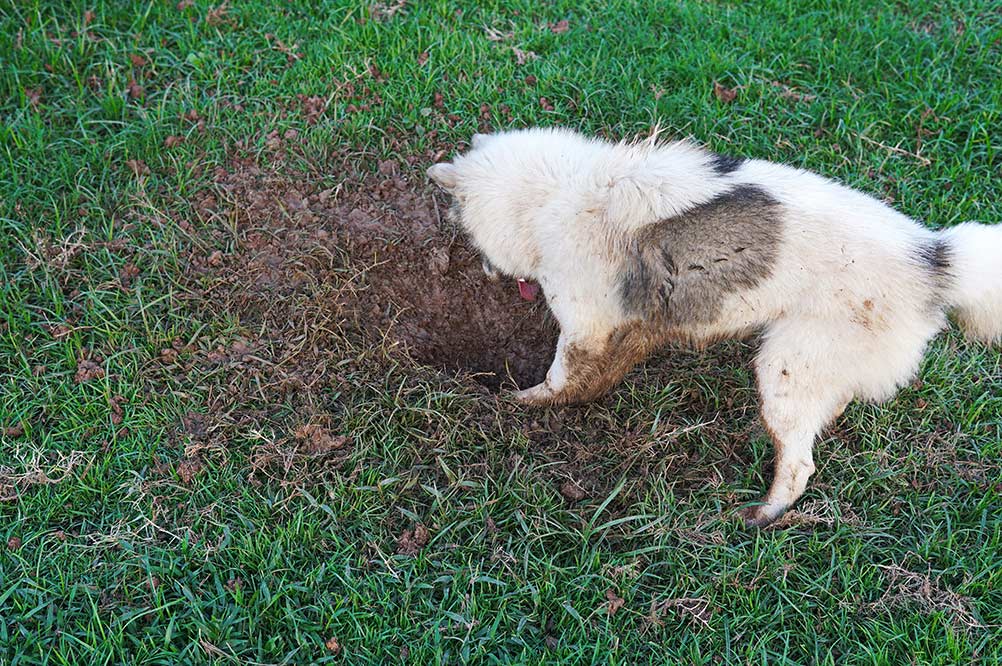
On the other hand, if you provide an adequate amount of exercise you are likely to find your dog calmer, more restful, and less anxious when you leave her alone at home. In fact, many negative behaviours can be avoided or reduced simply by providing the right amount of exercise. It is especially important to ensure that you dog’s need for exercise and social interaction have been met before leaving her alone at home and prior to lengthy crating or confinement sessions.
Note that it is important to find the right balance as over-exercising can also lead to health issues such as muscle fatigue or aches and pains in your dog’s joints. See here for more information on over-exercising.
The benefits of exercise for your dog
The benefits of exercise for your dog are the same as they are for you; basically, it is essential for your dog’s long term health and well-being. Exercise is important for your dog’s mental health, by giving her the opportunity to get out of her familiar environment, explore with all her senses, and meet and greet other dogs.
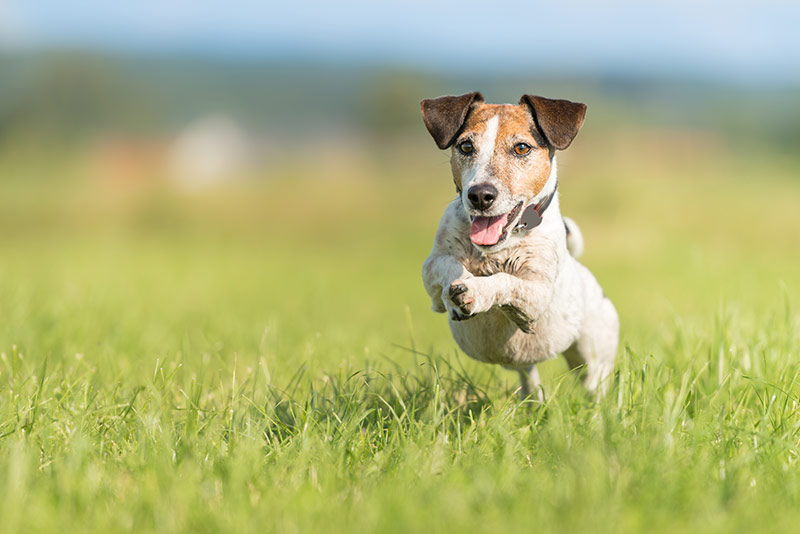
It is also vital for her physical health and longevity – some of the many physiological benefits of exercise are stronger bones, better joint health and improved heart and lung function. Other benefits of regular, daily, controlled exercise include:
- Strengthening and maintaining muscle tone, bones and joints
- Improving the cardiovascular system (heart health)
- Lowering blood pressure
- Preventing and reversing weight gain and obesity
- Preventing premature aging and lowering biological age
- Improving insulin health and metabolism
- Pumping toxins out of the body
- Alleviating pain from arthritis
- Reducing the risk of disease
Learn more
- How much exercise does my dog need?
- How much exercise does my puppy need?
- How to exercise your puppy
- Exercising your senior dog
- Indoor workouts for dogs
- Brain workout – Mental exercise for dogs
- Dog sports: fun activities for dogs & owners
Bow Wow Meow Pet Insurance can help protect you and your dog should an unexpected trip to the vet occur.
- Find out more about our dog insurance options





